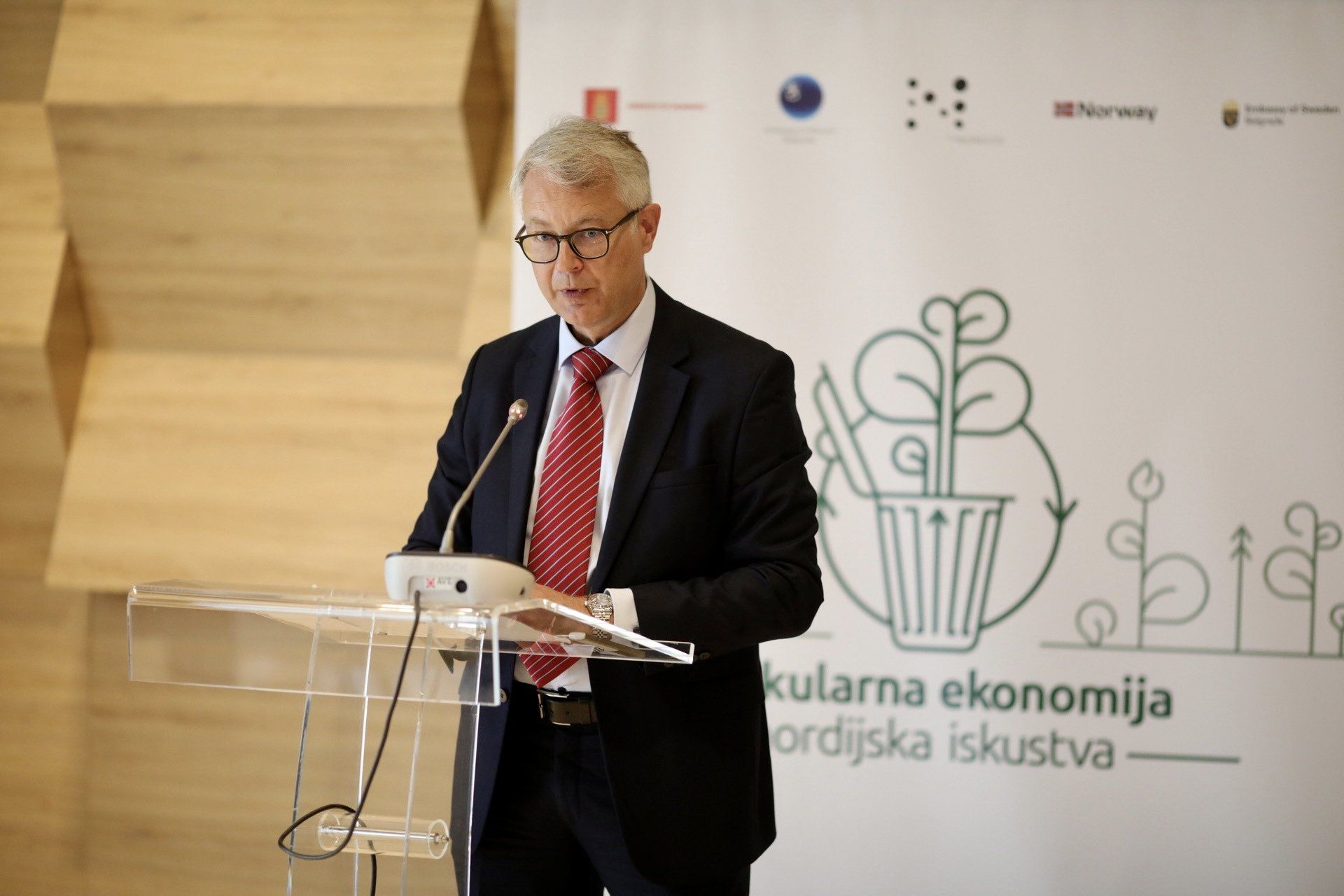Interview with the Ambassador of Finland H.E. Kimmo Lähdevirta

1. You are in the third year of your post in Serbia. How has it been? What are some key professional highlights and personal impressions you would like to share with our members? And, what is your expectation for the remainder of your term?
Thanks for asking! My wife and I were lucky to have come here already in June 2019, just before Finland’s Presidency of the Council of the EU. We got a speedy start during normal times, meaning that we were able to meet people and establish contacts before the pandemic hit. That helped us a great deal when personal contacts were not possible.
What I am very proud of is the ability of our Embassy staff and colleagues in other embassies and in the administration to cope with the situation and to show operational flexibility. They worked diligently both from home and at the office, keeping the embassy open for emergencies. That was crucial especially in the spring of 2020, when many travelers needed assistance to get back home.
Another professional highlight was the series of events related to Circular Economy that the Nordic embassies organized last year with local partners including the Nordic Business Alliance. The idea was to raise awareness, present best practices and to find partners for Nordic companies. I think it was a good and timely exercise considering that in December the EU decided to open Cluster 4 - The Green Agenda and Sustainable Connectivity - in the accession process.
Personally, I consider ourselves lucky to have been here in Belgrade during the pandemic, as Serbia was very quick to start mass vaccinations. I just hope that people would take the vaccinations offered.
The pandemic is not over yet, but I am hopeful that the situation will get better during the spring. I am therefore confident that we can get back towards normal work, with personal contacts and live meetings. Even though video calls and conferences have proven their worth, I think people are a bit tired of them.
2. Green transition is of paramount importance for Serbia and Western Balkans. Current energy crisis, upcoming European Carbon Tax, and generally ecologically-challenged environment have finally pushed this to the forefront of the Government agenda, and more importantly, raised considerable concern and interest among the civil society. Given the recently opened Chapter 4, what activities can we expect and how can Nordic countries assist to facilitate Serbia’s green transition.
Indeed, this is a very important topic – not only to fight climate change and environmental degradation, but also to make sure that Serbian companies are ready for the future and stay competitive in the European market.
I have noticed that there is already an excellent Finnish–Serbian private sector cooperation in this field. Finnish technology is ready to be used in Serbia, for example to produce recycled fiber lines, charge electric vehicles and measure air quality. All these technologies are related to the green transition.
Nordic embassies are presently discussing how to continue the work we started last year. Norway has the Presidency of the Nordic Council of Ministers (NCM) this year and is therefore coordinating the work. Financing decisions by the NCM will be done in April or May. If we can get their assistance, joint activities could be carried out in the autumn.
On the other hand, Sweden is the lead donor in the environmental sector, working in close cooperation with the EU Delegation, the Ministry of Environment and other international and local bodies. Although this work will be the key, also other Nordic embassies will carry out activities either together or individually, keeping up the momentum in the spring.
We especially want to find practical ways to help establish mutually beneficial business contacts. At this stage I am not able to go into specifics yet, as work continues with the Nordic Business Alliance, Circular Economy Hub of the Chamber of Commerce and other local partners.
3. Finland is four years in a row ranked #1 as the happiest place in the world. Other Nordic countries also top the list. Aside from objective indicators – GDP, levels of corruption, personal freedoms, etc. – how does it feel to live in the happiest nation? What makes a happy country?
I have to say that it is still a bit surprising to us, as the public discourse in Finland is mostly about the problems in the country. But I guess deep down Finns are fairly content with their lives.
What is very important is that citizens are able to trust that the institutions are doing their job properly. Moreover, there is a general trust among different stakeholders in Finland. When you agree something with someone, you can rely that the agreement holds. That is why also the Finnish companies are reliable business partners.
During the pandemic especially the role of social safety nets has been crucial. Even though there have been problems and not everybody has been helped the way they should have been, generally people have managed to cope fairly well.
4. With holidays behind us, book/movie/podcast you can recommend to our members?
Well, perhaps the Finnish movie “Compartment number 6” could be something to mention. Set in the 1990ies Russia, and despite being brutally realistic, it also provides hope and warmth in these difficult and uncertain times.
Another interesting piece would be the Finnish series “Bordertown”, for those who like noir style of filmmaking and crime drama. This series was broadcasted last summer on the Serbian national television RTS, and I hear people here liked it, too.

